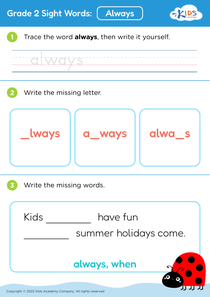Reading comprehension Grade 2 Subtraction Worksheets
4 filtered results
-
From - To
Enhance your second grader's reading comprehension skills with our engaging subtraction worksheets! Designed specifically for Grade 2 students, these worksheets not only focus on subtraction concepts but also incorporate reading tasks that promote critical thinking. Children will read carefully crafted word problems, practicing their subtraction skills while improving comprehension. Each worksheet features vibrant illustrations and relatable scenarios, making learning fun and effective. Perfect for both classroom use and at home, these resources aim to boost confidence and mastery in math. Foster a love for learning with our targeted, easy-to-follow subtraction worksheets that turn reading into an active and entertaining learning experience!
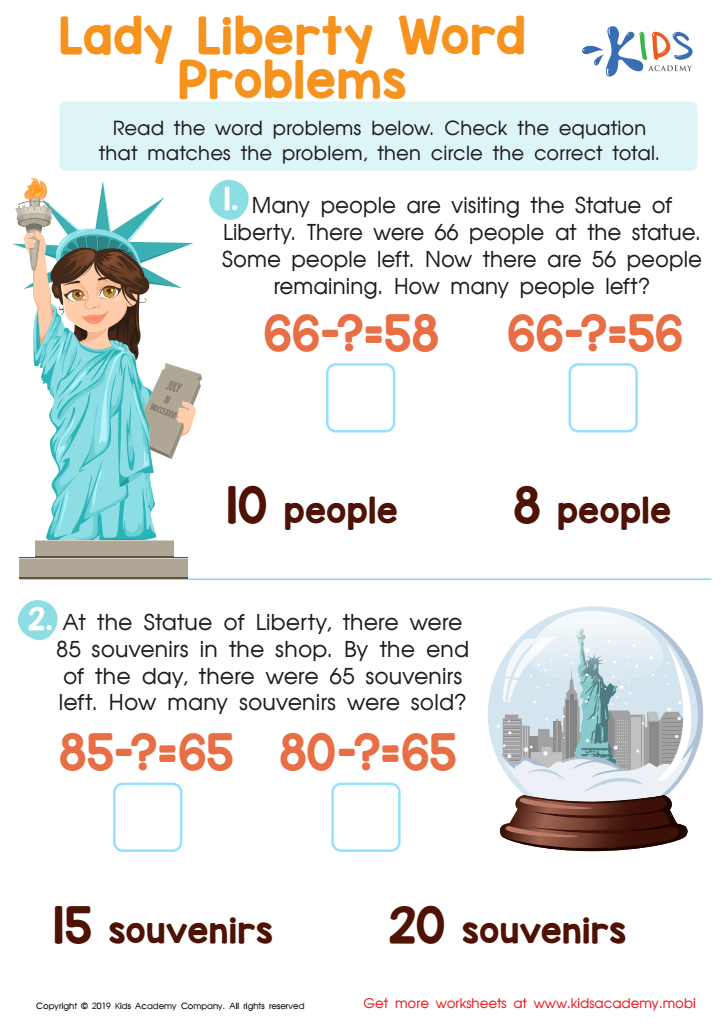

Lady Liberty Worksheet
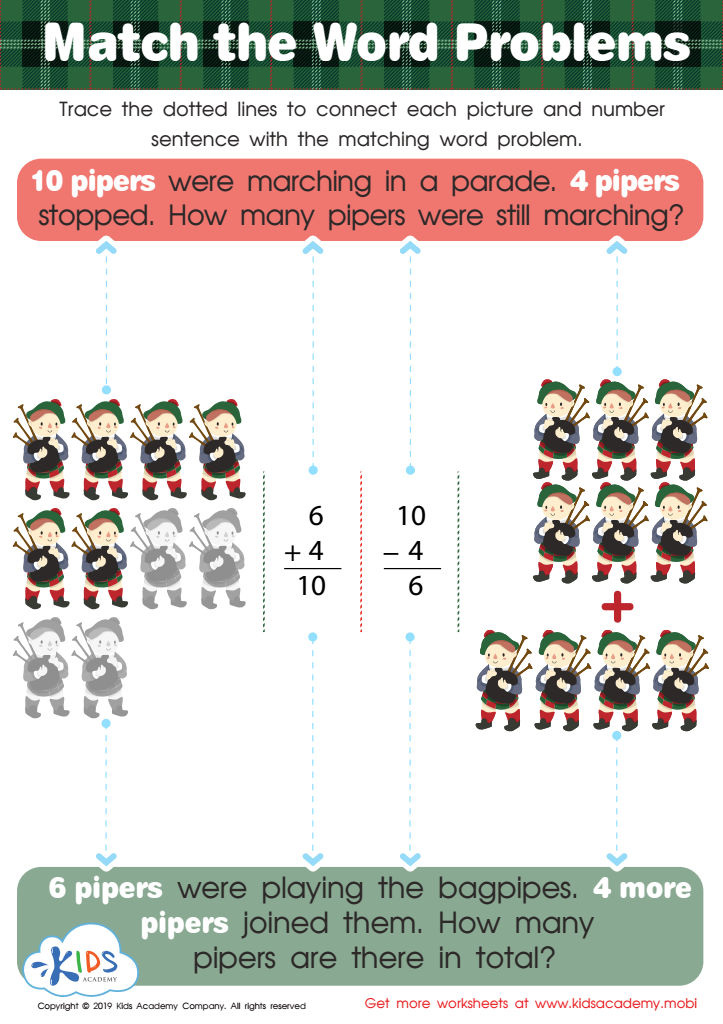

Match the Word Problems Worksheet
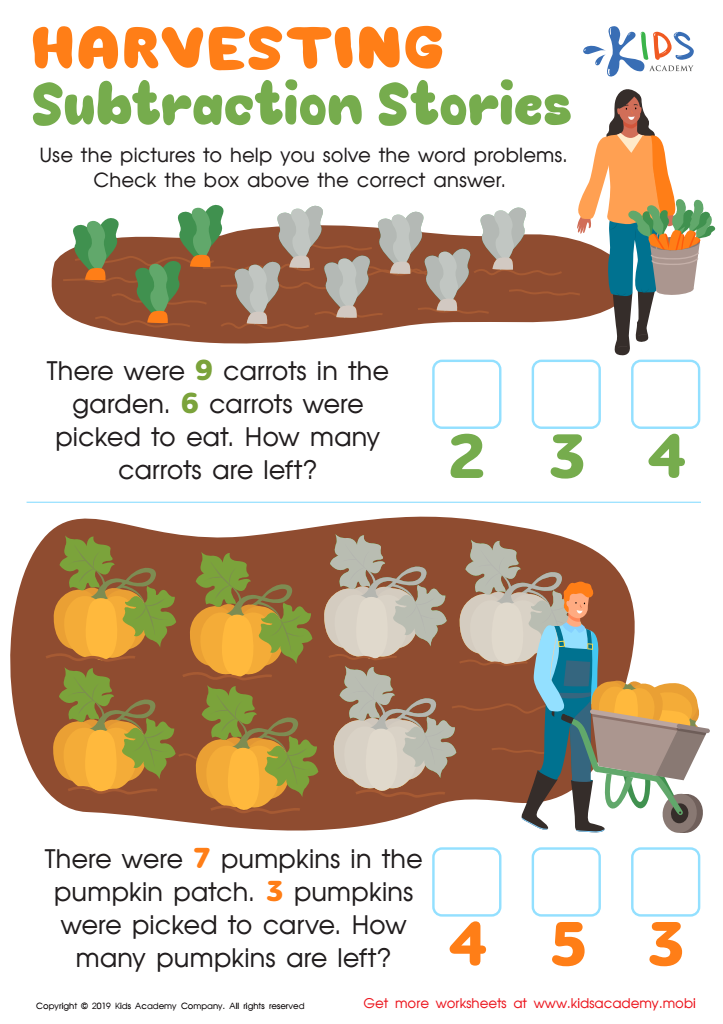

Harvesting Subtraction Stories Worksheet
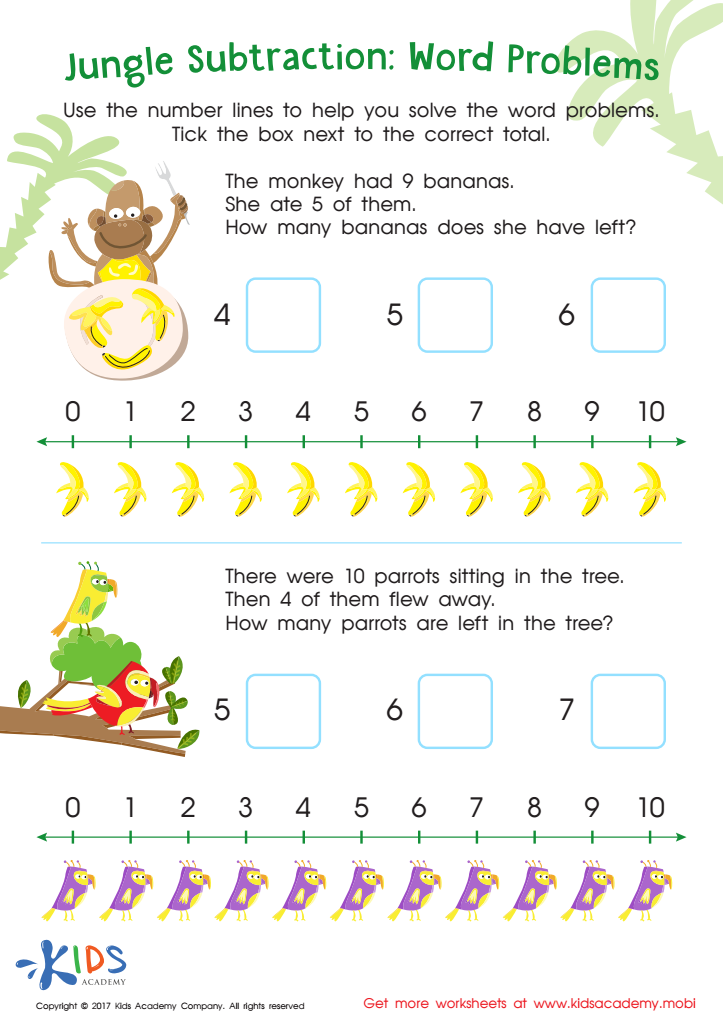

Jungle Subtraction Word Problems Substraction Worksheet
Reading comprehension and mathematical understanding, such as Grade 2 subtraction, are critical skills that contribute significantly to a child's overall academic success. For parents and teachers, caring about these subjects at this stage is essential for several reasons.
Firstly, reading comprehension provides the foundational skills necessary for children to interpret and understand instructions, word problems, and educational content. This skill is crucial for making sense of subtraction tasks presented in text, linking literacy directly to mathematical proficiency.
Moreover, Grade 2 is a pivotal year; children begin to make connections between reading and math concepts, enhancing their ability to think critically. Encouraging strong reading skills supports children's confidence and motivates them to engage with challenging concepts, turning subtraction from a mere procedural task into an opportunity for deep understanding and problem-solving.
In addition, awareness of a child's competency in reading comprehension and subtraction enables parents and teachers to identify areas needing support and to augment their learning strategies. By prioritizing these subjects, adults can create a more enriching educational environment that fosters both mathematical skills and literacy, ultimately preparing children for future academic challenges and lifelong learning.
 Assign to My Students
Assign to My Students















